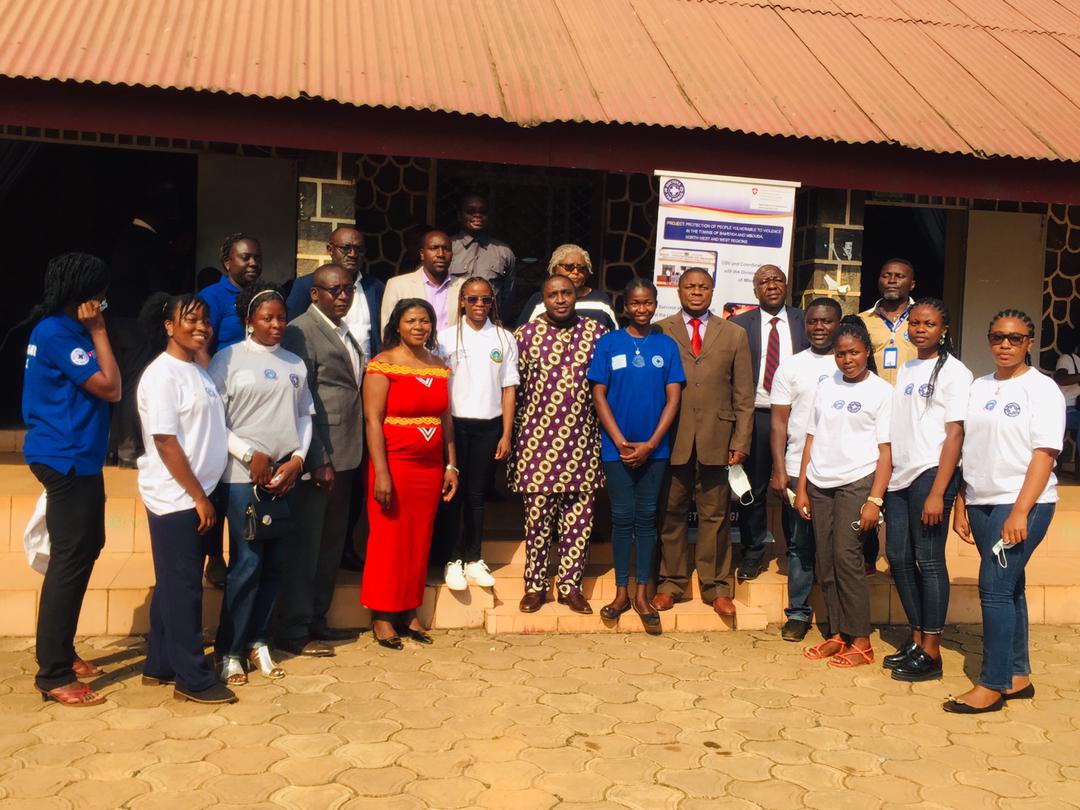By Colbert Gwain
Secondary Education Minister, Professor Nalova Lyonga’s new move to correct the scripts of decades of Government authoritarianism in systematically dismissing pregnant students from colleges in Cameroon may at first sight seem controversial.
Yet, a deeper reading reveals a tsunami of equally systematic injustices to generations of female students who have been deprived of their education, and by extension, life-long opportunities, simply because they got pregnant.
Despite years of lobbying and advocacy by local women’s rights campaigners who were largely inspired by regional and international instruments duly ratified by Cameroon, it took the courage and dogged determination of Professor Nalova Lyonga, to reverse the retrogressive Government decision.
Cognizant of the fact that the Minister’s decision was informed by UN Human Rights instruments that urge state parties to ‘recognize the vulnerability of adolescent girls’, school authorities and the education community must only be encouraged to implement Nalova Lyonga’s decision, to the letter.
For, once the girls are allowed to drop out of school because of pregnancy, they are easily lured into ‘early and forced marriages, which reduce their opportunity to complete school, develop employable skills, and contribute to community development
To better understand the import of the recent ministerial decision, one only needs to go through available research on the subject. Going by a reproductive health report published on January 5, 2022, by some seasoned Cameroonian researchers, including Joelle Sobgwi Tambekou, Marthe Tsague Agnoux, and Flavien Ndonko, under Open Access, 77% of pregnant school dropouts in Cameroon, never return to complete their education. A situation Secondary Education Minister, Professor Nalova Lyonga is fighting tooth and nail to reverse.
More dangerously, the research results point to the fact that almost one in five (19.3%) of teenage mothers interviewed confessed to having had induced abortion, at least once. And this is where Professor Pauline Nalova’s preemptive foresightedness comes alive. Her logic: If a student and by extension, some parents, know for sure the child’s education would not be tampered with, they would not take the risky option of abortion-a thing many parents and sometimes authors of such pregnancies, have forced the victims to do, a thing the victims themselves have voluntarily done.
Which results in immediate risks of death for some, and long-term consequences of infections and barrenness, for others.
The Open Access researchers reveal that Cameroon’s national registry for single mothers, Reseau Nationale des Tantines (RENATA), or National Network of Aunties, (an auntie being a single mother trained in reproductive health and adolescent rights), has over 20,000 members, belonging to 305 associations nationwide, with 42.3% of them have dropped out of school due to unplanned pregnancy. The study also names pregnancy as the second cause of school dropout in girls with 16.9% dropout rates, after financial problems. It was probably for this reason, therefore, that the Minister sort to reverse the alarming situation, and in a more productive manner.
With some studies already conclusive on the fact that the long-term consequences of early childbirth on a teenage mother’s social status and child development could be lessened by continuing education, and that educational continuity may reduce the risk of subsequent pregnancies, one could only applaud H.E, Professor Nalova Lyonga’s decision to reverse the outdated 1980 circular prescribing dismissal as an only sanction to a pregnant student.
Professor Nalova Lyonga’s proactive decision not only helps to bring back Cameroon to the table of Commitment Makers at the UN Women’s Generation Equality Coalition, but also aligns with the thinking that since student pregnancy is just a temporary disability, and that since a woman does not get dismissed from her job simply because she got pregnant, the female student should be allowed to continue her education.
Professor Nalova Lyonga’s recent directives come to correct and complete Nathaniel Hawthorne’s story of sin and punishment, of the strengths of women and the weakness of men, in the famous American novel, ‘The Scarlet Letter. Although the Scarlet Letter ‘A’ that Hester Prynne, the main character in the fictional story, is forced to wear, is a punishment for adultery in Puritan New England, Professor Nalova Lyonga, who was long time lecturer of ‘The Scarlet Letter’ in the University of Yaounde and beyond, completely redefines it in today’s Cameroon to mean, ‘able’ or ‘angel’, and no longer a badge of shame.
Just like Rev. Dimmesdale, the clergyman in The Scarlet Letter convinces the Governor to allow Hester to keep her daughter, Pearl, with her as a constant reminder of her ‘fall and transgression’.
This could be evaluated by, Cameroon’s Secondary Education Minister convincing school authorities, both public and private, to allow pregnant students to stay in school, as a constant reminder of their ‘fall and transgression’.
If ‘The Scarlet Letter’ continues to be taught in schools today because it is a direct path to students’ engagement with the past and the future, Professor Nalova Lyonga completes that relevance in her directives by tasking school authorities to systematically include sexual and reproductive health education into all lessons.
Professor Nalova Lyonga’s latest edict is, therefore, a wake-up call that we cannot continue to live in a repressive and authoritarian society, as it is an analogue for the girl child in particular and humankind in general.
It demonstrates in triumphant detail that change is possible in Cameroon once we have the right people with the right mind frames.
Colbert Gwain is a digital rights activist, author, radio host, Commitment Maker at UN Generation Equality Coalition, and content creator @TheColbertFactor. You can help us continue creating more investigative, balanced, fair, reliable, credible and educative content, by donating your widow’s mighty mite through MTN momo number: 677852476




















